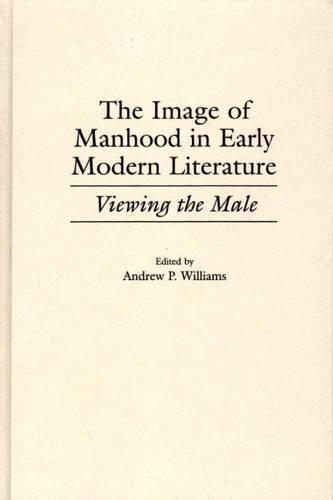
The Image of Manhood in Early Modern Literature: Viewing the Male
(Hardback)
Publishing Details
The Image of Manhood in Early Modern Literature: Viewing the Male
By (Author) Andrew P. Williams
Bloomsbury Publishing PLC
Praeger Publishers Inc
30th April 1999
United States
Classifications
Tertiary Education
Non Fiction
Gender studies, gender groups
809.99352041
Physical Properties
Hardback
216
Width 156mm, Height 235mm
454g
Description
The numerous and multifaceted ways in which masculinities emerge and are expressed within cultures prompt a broad ranging examination and reconsideration of what it means to be a man. Within the study of masculinity, the early modern period stands between the Renaissance, when conceptions of manhood were primarily dominated by chivalric and humanistic traditions, and the latter half of the 18th century, which marked the beginnings of modern conceptions of masculine identity. But rather than a transitional period, the early modern era was a key moment in the evolutionary dynamics of masculine representation. Political forces, such as the Puritan revolution, the Restoration, and the shift in power from the courtier class to the growing middle class forced a reconsideration of the masculine ideal in light of the experiences of the masses. At the same time, the emergence of print culture provided a means of transmitting the new masculine ideal, and literature of the period reflected the changing notions of masculinity. The chapters in this volume explore the various strategies used by early modern writers to represent masculinity. Together, the expert contributors offer a broad perspective on the social and political dynamics of early modern masculine identity. Included are chapters on such writers as Thomas Carew, Andrew Marvell, Francis Beaumont and John Fletcher, John Dryden, Daniel Defoe, and Samuel Richardson. Though incorporating a variety of critical approaches, the contributors all explore the inherent anxiety associated with masculinity and its representation. The chapters demonstrate how significant literary texts of the period provided not only idealized images of early modern manhood but also contesting ones. By focusing on the literary, historical, and social dynamics which construct cultural perceptions of masculinity, this volume ultimately illustrates the literary representation of manhood in the early modern period to be a dynamic and evolving process which often challenged Western notions of what it means to be a man.
Reviews
[P]rovide[s] interesting insights into the representation of masculinity in early modern Europe.-Early Modern Literary Studies
"Provides interesting insights into the representation of masculinity in early modern Europe."-Early Modern Literary Studies
"[P]rovide[s] interesting insights into the representation of masculinity in early modern Europe."-Early Modern Literary Studies
Author Bio
ANDREW P. WILLIAMS is Assistant Professor of Early Modern Literature in the Department of English at North Carolina Central University. His previous books include The Restoration Fop: Gender Boundaries and Comic Characterization in Late Seventeenth Century Drama (1995), and his articles have appeared in such journals as The Midwest Quarterly and Early Modern Literary Studies.
